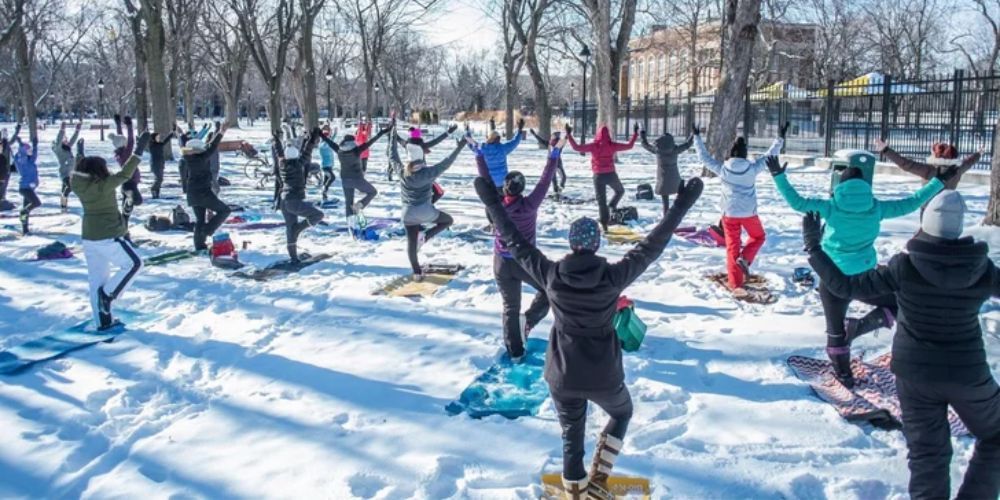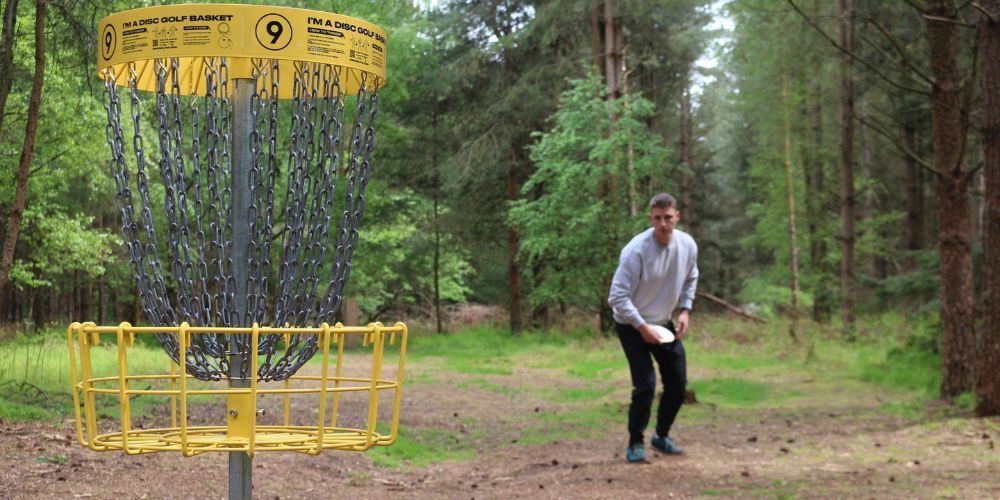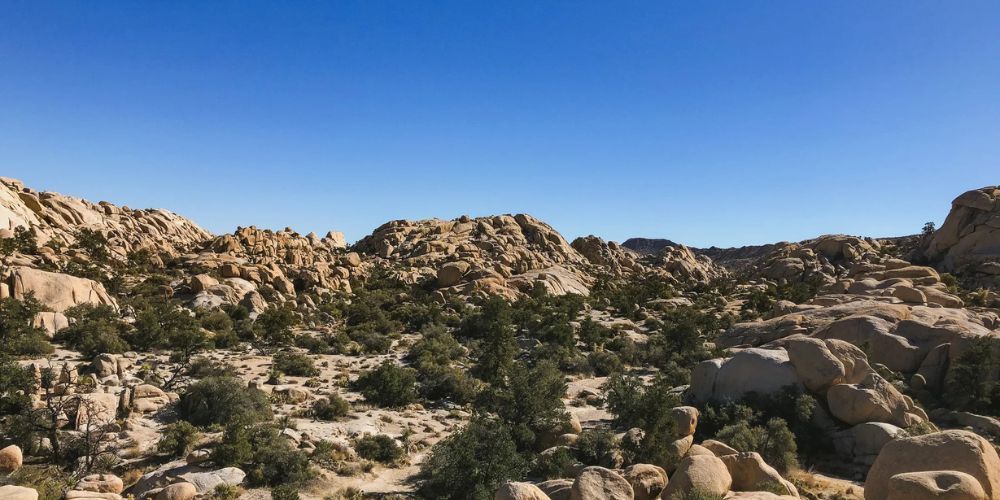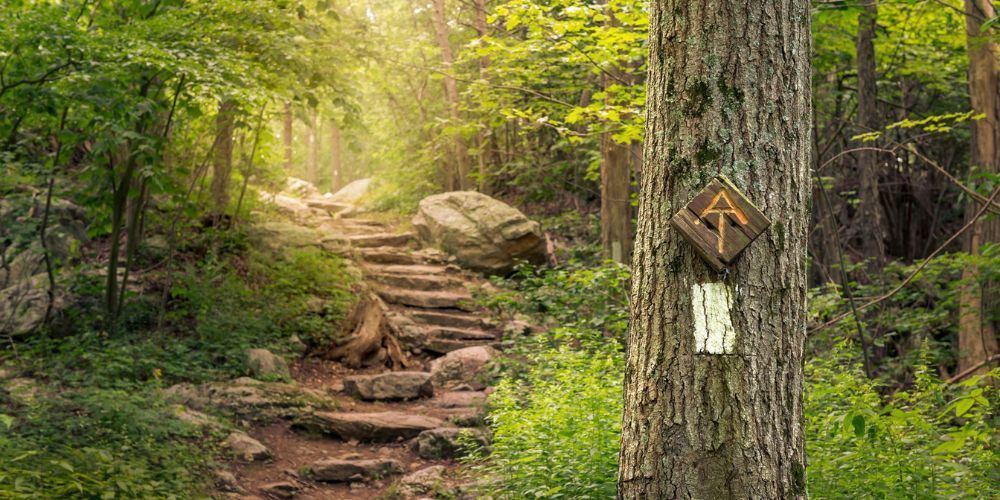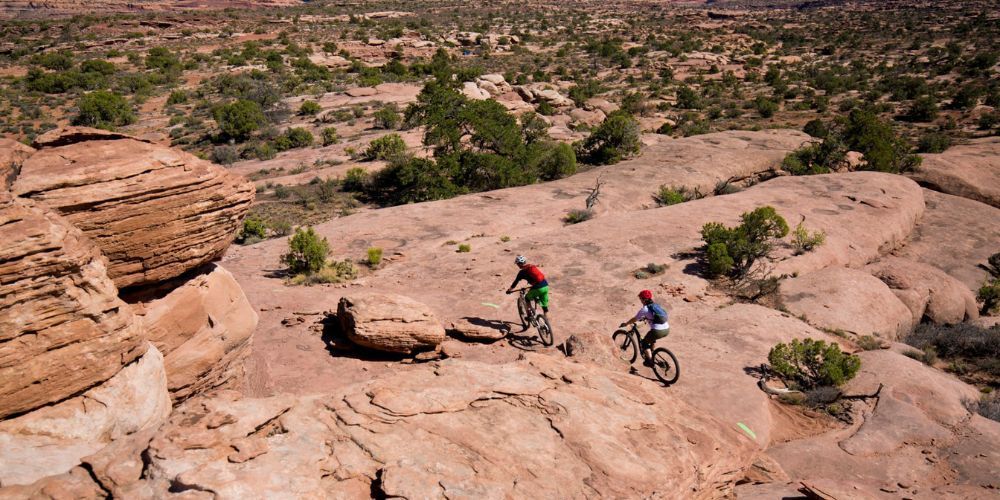Hiking for Mental Health: The Benefits of Outdoor Exploration on the Mind
July 14, 2024
Imagine a quiet trail winding through a lush forest, where the rustling leaves whisper calmness and each step brings you closer to peace. It’s no wonder that many find solace in such settings—nature has a profound effect on our minds. Research supports this: A study from Stanford University found that people walking in nature had different brain activity compared to those in urban areas, specifically reduced neural activity in regions linked to mental illness risk.
This blend of physical movement and natural beauty offers more than just fresh air; it can significantly lower stress levels, improve mood, and enhance emotional stability. In Japan, practitioners of "forest bathing" report decreased cortisol by about 16% and lower blood pressure simply by spending mindful time among trees. These findings guided our deep exploration into hiking's mental benefits, aiming to offer you actionable insights backed by science and enriched with real experiences.
Hiking offers a range of mental benefits, including reduced stress and anxiety, improved mood, enhanced creativity, and a sense of connection with nature. It can also serve as an effective tool for dealing with mental health issues and promoting overall psychological wellness.
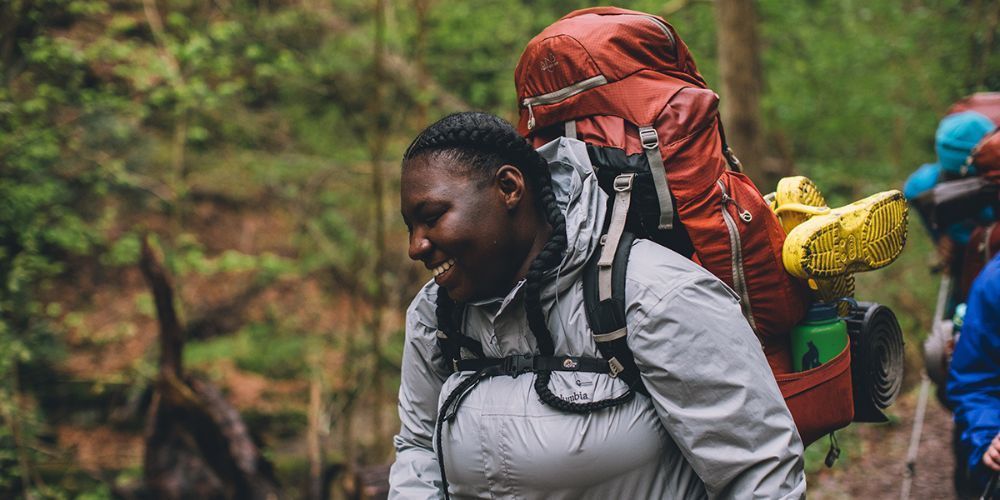
Mental Benefits of Hiking
Hiking works wonders for the mind. It's not just about the physical exertion or reaching the summit of a mountain; it's about the mental reset that comes with every step on the trail. Being active in a natural environment has a profound impact on mental well-being. When surrounded by greenery, hikers often report an overall sense of well-being—something that's difficult to achieve within the confines of modern urban living.
Scientific Backing
The allure of hiking isn't just anecdotal; it's scientifically backed. Studies have shown that spending time in nature can greatly contribute to reduced levels of depression, enhanced emotional stability, and improved resilience to stress. For instance, a study from Stanford University revealed that participants who took walks in natural settings experienced reduced neural activity in brain regions linked to the risk for mental illness when compared to those who walked in urban settings.
This interesting discovery highlights the therapeutic impact nature has on our mental well-being. In essence, hiking becomes more than just exercise—it transforms into a potent tool for nurturing emotional stability and resilience.
Moreover, trekking through natural landscapes can offer an escape from the demands and stresses of daily life, allowing individuals to disconnect from technology and reconnect with themselves on a deeper level. This respite from digital distractions provides an opportunity for introspection and self-reflection, fostering a sense of inner calm and clarity.
Think of it as nature's way of offering you a break from the incessant notifications and endless scrolls through social media feeds—your mind gets to take a breather from digital overload.
In essence, by engaging in regular hiking activities, individuals not only prioritize their physical health but also nurture their mental well-being, allowing them to thrive amidst the countless challenges of modern life.Now, let's dive into how nature walks present a powerful strategy for reducing stress and promoting mental well-being.
Stress Reduction through Nature Walks
Have you ever walked through a dense forest, feeling the air cool and the sounds of trees rustling all around you? There's a reason why this kind of experience is so soothing. Studies have shown that spending time walking through natural environments like forests, mountains, or meadows can significantly reduce stress levels. In fact, some cultures have even developed practices around spending mindful time in nature to achieve a sense of calm and peace.
One such practice is the Japanese art of "forest bathing" or Shinrin-yoku. This involves immersing oneself in the forest atmosphere and mindfully taking in the sights, smells, and sounds that surround them. Just twenty minutes of mindful forest walking can reduce cortisol levels by about 16%. Cortisol is a hormone associated with stress, so decreased levels correspond with a reduction in stress.
In addition to lowering cortisol levels, studies have also shown that spending time in natural settings can contribute to lower blood pressure, promoting a calmer state of being. The ambient sounds of nature play a big role here too. The gentle chirping of birds, the rustling of leaves in the wind—the symphony of sounds found in natural settings has been found to significantly contribute to a calm mind and reduced anxiety.
It's fascinating to see how something as simple as taking a walk in nature can have powerful effects on our mental health. By giving ourselves time to soak in the natural beauty around us, we are actively reducing the impact of stress on our minds and bodies. This not only benefits our immediate well-being but also contributes to our long-term mental health.
So, the next time you're feeling stressed or overwhelmed, consider taking a walk through nature as a way to unwind and refresh your mind.
Boosting Mood and Emotional Well-being
When you step into nature for a hike, your body begins to experience some truly remarkable changes. It's not just about the physical exertion; it's about what happens inside your brain and body as you explore the great outdoors.
As you start to move along, your body releases endorphins - these are like little happiness molecules that help lift your mood. Endorphins work as natural painkillers, reducing feelings of discomfort or pain, while also giving you a sense of well-being and euphoria. This is why many people talk about the "hiker's high" - it's not just the beauty around you that makes you feel good, but also the internal workings of your body that contribute to that sense of positivity.
Not only do these endorphins improve your mood, but while hiking under the sunlight, your body starts to produce more Vitamin D. This essential vitamin is crucial for mood regulation and even combating seasonal affective disorder (SAD). So, every step you take in the sun isn't just a step closer to your destination; it's also a step towards boosting your emotional well-being.
In fact, a study from the University of Essex found that just five minutes of exercise in a natural setting can significantly improve mood and self-esteem. Imagine that! Just five minutes of walking in the woods or along a trail, and suddenly you're feeling much better about yourself and the world around you. It just shows how powerful hiking can be for keeping our emotions balanced and healthy.
Feeling low? Fatigued? Stressed out? Sometimes all it takes is lacing up those boots and taking a stroll through nature to experience a profound uplift in mood. And this isn't just an anecdotal feeling - it's backed by science.
With such an incredible impact on your emotional well-being, it's no wonder that hiking remains one of the most popular activities for those seeking mental rejuvenation.
Moving forward, let's dive into the cognitive enhancements derived from engaging in this revitalizing outdoor activity.
Cognitive Enhancements from Hiking
When we discuss hiking and its effect on the brain, it's not just about getting a breath of fresh air. The mental benefits are impressive. For one, the act of hiking itself requires problem-solving skills - you have to navigate trails, anticipate obstacles, read maps, and observe your surroundings. This constant need for observation and decision-making enhances spatial awareness and attention.
A study by psychologists Ruth Ann Atchley and David L. Strayer revealed some remarkable findings. Participants who spent four days in nature, disconnected from electronic devices, performed 50% better on creative problem-solving tasks. So, when you leave your phone behind and let your brain take in all the natural beauty around you, it actually makes your brain work better! It's like giving your mind a refreshing boost.
Think of it like going to a gym for your brain. You're training it to think faster, be more aware, and most importantly, be more creative.
What's even more fascinating is that hiking stimulates the brain's hippocampus, critical for learning and memory. This doesn't just help you remember where you parked your car at the trailhead - it helps with everyday things like remembering someone's name or recalling important information during meetings.
Imagine hiking through a dense forest, trying to find your way back to the trailhead. Every step requires calculation, memory recall about the path taken, alertness due to various sounds, smells, and sights in the environment. These small tasks and sensory experiences effectively hone your cognitive functions without you even realizing it.
Now that we've explored just how hiking impacts cognitive function, let's take a look at how nature exposure can improve attention and focus - two crucial aspects of cognitive functioning.
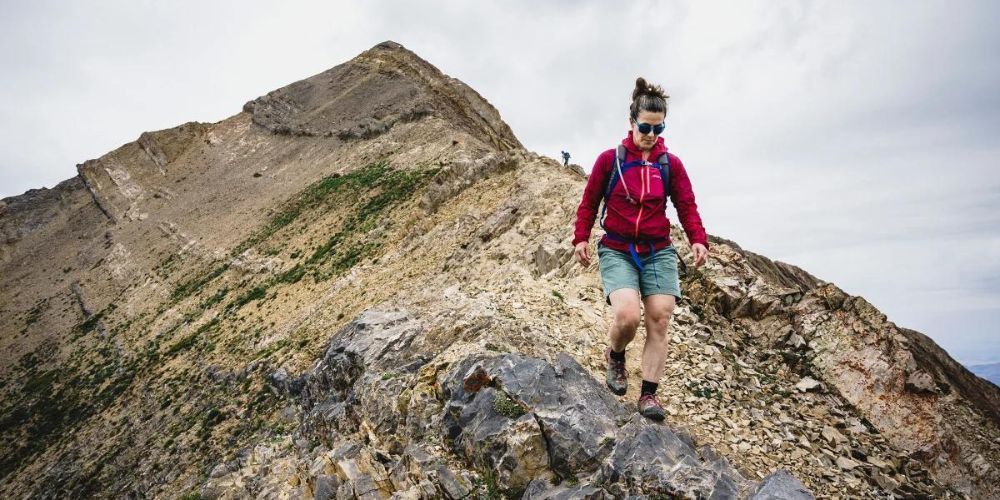
Physical Exercise and Mental Health Connection
When it comes to mental health, physical exercise plays a crucial role. Aerobic activities like hiking have been linked to numerous positive mental health outcomes. The act of engaging in regular physical exercise triggers the production of brain-derived neurotrophic factor (BDNF), a key protein known for supporting the growth and survival of neurons— directly impacting brain health and mood regulation.
But what makes hiking particularly special is its amalgamation of physical challenges with the mental rejuvenation provided by natural settings. The rhythmic movements involved in hiking, along with exposure to fresh air, sunshine, and green surroundings, create a therapeutic atmosphere that can significantly reduce anxiety and depression rates. The feeling of accomplishment after conquering a challenging trail also contributes to an increase in overall wellbeing.
The American Psychological Association reinforces the notion that even moderate exercise, such as a brisk walk through the woods or up a mountain trail, can benefit mental health by reducing fatigue and improving mood. This is significant because it highlights how even small efforts towards physical activity can yield meaningful improvements in mental wellbeing.
In fact, research has shown that regular engagement in physical activity can act as an effective antidote to low mood and emotional distress. The release of endorphins during exercise induces feelings of euphoria and general happiness, directly impacting mental state.
BDNF: A Key Player in Cognitive Wellness
Brain-derived neurotrophic factor (BDNF) is a crucial protein that affects synaptic plasticity—the brain's ability to build new connections between neurons. It also influences neurogenesis which is the process of creating new neurons in the brain.
This means that BDNF helps our brains adapt to new information, form memories, and regulate mood—a trifecta related to overall cognitive wellness. Therefore, engaging in activities that boost BDNF levels, such as hiking, contributes to enhanced brain function and better emotional regulation.
Hiking, with its combination of physical exertion and exposure to natural environments, offers a multifaceted approach to promoting mental health. The tranquility of nature coupled with the endorphin release from the physical activity creates an optimal environment for emotional restoration.
Physical exercise shares an intricate relationship with mental wellness; the impact it has on brain function and mood regulation is profound.

Exploring Different Hiking Environments
When hitting the trails for a hike, choosing where to go is akin to selecting a scene for a play. Each environment offers distinct mental and emotional benefits, creating an experience that goes beyond just physical exertion. Let's dive into the different types of hiking environments and their specific effects on the mind.
Forests have long mesmerized nature enthusiasts with their rich greenery, soothing sounds, and calming aroma. These qualities create a serene setting that promotes relaxation and reduces stress. The Japanese call this "forest bathing" or Shinrin-yoku, describing the act of being immersed in the forest as a form of therapy. When surrounded by trees, our mind tends to slow down, enjoying the peace and quiet.
Moving from lush forests to coastal trails brings us face to face with the limitless expanse of the sea.
Coastal Trails: Inspiring Awe and Tranquility
Gazing out at an endless horizon adorned with crashing waves can inspire awe and a sense of tranquility. The sight of the ocean has an almost hypnotic effect, overpowering any anxiety or restlessness in our minds. The rhythmic sound of the waves has a way of lulling our thoughts into calmness.
The grandeur of the ocean invites us to pause and take in something larger than ourselves. This experience can shift our perspective, prompting us to reflect on our place in the world—instilling humility and inspiring creativity.
While coastal trails offer awe-inspiring vistas, mountain hikes present an entirely different challenge.
Mountain Hikes: Challenging Body and Mind
Hiking up steep inclines tests our physical endurance but also challenges the mind. As we ascend, each step presents an obstacle to overcome, fostering a sense of accomplishment and resilience. The sweeping views from mountain peaks offer a feeling of triumph, rewarding us for our efforts.
Mountain hikes instill a heightened awareness of physical sensations and surroundings. In this environment, we become more attuned to rhythms and patterns, grounding us in the present moment.
When urban life becomes overwhelming, escaping to urban parks offers a surprising respite.
Urban Parks: An Oasis Amidst Busyness
Though less secluded than other hiking environments, urban parks provide a much-needed break from city life. Filled with greenery and open spaces, these parks significantly improve mood and mental clarity. The natural elements soothe frayed nerves, inviting moments of stillness within bustling cities.
The contrast between the urban landscape and the peaceful surroundings creates a striking change in atmosphere, offering a much-needed escape from noise and constant activity.
Each hiking environment contributes distinct elements to mental well-being. By immersing ourselves in diverse natural settings, we unlock the versatile mental health benefits of hiking—a practice that transcends physical exercise alone.
How does hiking benefit mental health?
Hiking benefits mental health in several ways. Being in nature can reduce stress and anxiety levels, as the natural environment promotes relaxation and a sense of calm. Physical activity from hiking releases endorphins, which are known to improve mood and reduce feelings of depression. Additionally, hiking can enhance cognitive function by improving concentration and memory, and it provides a break from the digital world, allowing for mental clarity and mindfulness. Social interaction, if hiking with others, can also provide emotional support and reduce feelings of loneliness.
What should I do to prepare for a mental health-focused hike?
Preparing for a mental health-focused hike involves a few key steps. Choose a trail that suits your fitness level and provides a serene, natural environment. Make sure to pack essentials such as water, snacks, appropriate clothing, and a first aid kit. It’s helpful to set a mindful intention before starting your hike, focusing on being present and enjoying the surroundings. Consider leaving electronic devices behind or turning them off to fully immerse yourself in nature. If you’re new to hiking, start with shorter trails and gradually work up to longer hikes to build your confidence and stamina.
Are there specific types of trails that are better for mental health benefits?
Certain types of trails can enhance the mental health benefits of hiking. Trails that offer diverse natural scenery, such as forests, mountains, lakes, and waterfalls, can provide a more immersive and visually stimulating experience. Quiet, less crowded trails are ideal for those seeking solitude and mindfulness. Trails with gentle terrain and moderate difficulty can reduce physical strain and allow you to focus more on the mental health aspects of your hike. Urban green spaces and nature parks can also offer mental health benefits for those who may not have access to wilderness areas.
Check out the latest guides on hiking gear
Author: William Flaiz
All Rights Reserved | Sports and Nature Gear

